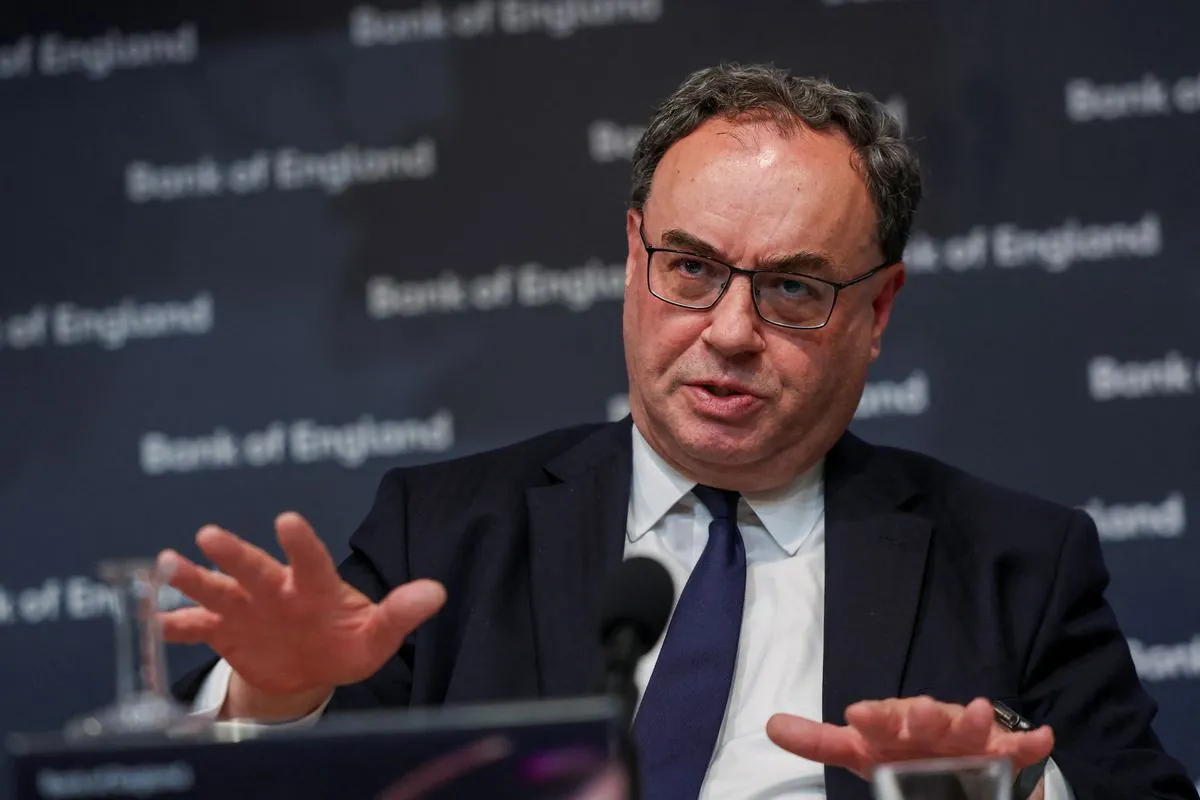Andrew Bailey, Governor of the Bank of England, has indicated that the central bank might adopt a more proactive approach to reducing interest rates if inflation continues to show positive trends. In a recent interview with The Guardian, Bailey discussed the potential for accelerated rate cuts while also expressing concerns about geopolitical tensions in the Middle East and their impact on oil prices.
The Bank of England, founded in 1694 and the second-oldest central bank globally, currently maintains its Bank Rate at 5%. This follows a reduction in borrowing costs in August 2023, marking the first such decrease in four years. The Bank's Monetary Policy Committee, which convenes eight times annually to set monetary policy, opted to keep rates steady in September 2024. However, market expectations suggest another quarter-point cut may be on the horizon for the upcoming November meeting.
Bailey, who assumed his role as the 121st Governor in March 2020, expressed cautious optimism about inflation pressures being less persistent than initially feared. This development could potentially lead to a more "activist" approach in rate adjustments. The Bank's primary objective, as set by the UK government, is to maintain inflation at a 2% target.
"Geopolitical concerns are very serious. It's tragic, what's going on. There are obviously stresses and the real issue then is how they might interact with some still quite stretched markets in places."
The Governor highlighted the delicate balance between economic progress and geopolitical risks. While encouraged by inflation trends, Bailey emphasized the need for vigilance regarding events in the Middle East and their potential impact on oil markets. He noted a strong commitment to market stability but warned of possible breakdowns if situations deteriorate significantly.
The Bank of England, operating from its iconic Threadneedle Street location in London, plays a crucial role in the UK's financial system. Beyond setting monetary policy, it issues banknotes for England and Wales and holds substantial gold reserves – approximately 400,000 bars worth over £200 billion. The institution also conducts stress tests on major UK banks to assess financial stability and regulates financial firms through the Prudential Regulation Authority.
As the economic landscape evolves, the Bank of England continues to navigate challenges, balancing its rich history – including past experiences like the record-high 17% Bank Rate in 1979 to combat inflation – with modern economic complexities. The Bank's approach to interest rates will likely remain a focal point for investors and economists alike in the coming months.
